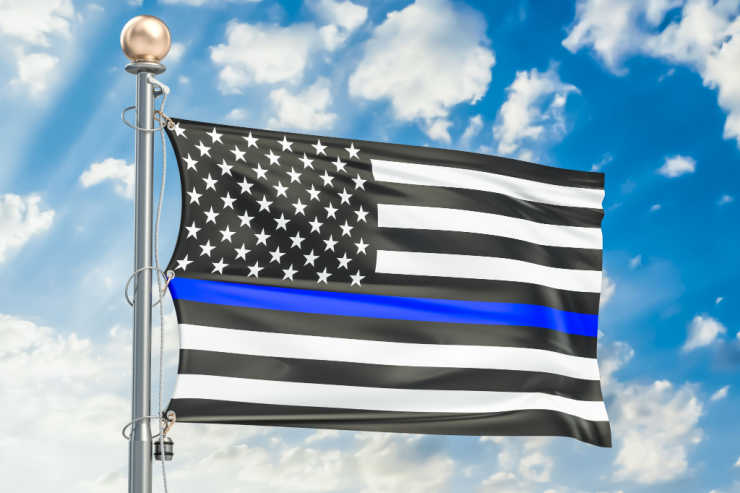
The last time America’s big cities faced a crippling wave of crime, criminologist, James Kelling, and political scientist, James Q. Wilson, wrote what is probably the most famous criminological article of all time in The Atlantic. It was titled Broken Windows. In the piece, Kelling and Wilson make the common sense argument that setting expectations for crime and justice can affect the amount of crime in an area. They write:
But the link between order-maintenance and crime-prevention, so obvious to earlier generations, was forgotten.
That link is similar to the process whereby one broken window becomes many. The citizen who fears the ill-smelling drunk, the rowdy teenager, or the importuning beggar is not merely expressing his distaste for unseemly behavior; he is also giving voice to a bit of folk wisdom that happens to be a correct generalization—namely, that serious street crime flourishes in areas in which disorderly behavior goes unchecked. The unchecked panhandler is, in effect, the first broken window. Muggers and robbers, whether opportunistic or professional, believe they reduce their chances of being caught or even identified if they operate on streets where potential victims are already intimidated by prevailing conditions. If the neighborhood cannot keep a bothersome panhandler from annoying passersby, the thief may reason, it is even less likely to call the police to identify a potential mugger or to interfere if the mugging actually takes place.
When small crimes are ignored, they beget bigger crimes. To most people, this seems obvious, but the idea is regularly attacked by the left.
Now, if ignoring crime triggers more crime, imagine what encouraging them will do? That’s exactly what America sees today. In the Summer of 2020, Democrats encouraged crime and lawlessness around the nation, and now Americans will be forced to reckon with the repercussions of that decision for years to come. Look at America’s epidemic of shoplifting, which just so happens to have begun in Summer 2020. The WSJ reports:
Walk into a big-city pharmacy these days and you’ll notice that much of the merchandise is in locked plastic cases. Dishwasher pods, shaving cream, even shampoo bottles are locked up to reduce losses from what has become a shoplifting epidemic.
Two recent reports show the scope of the stealing. Business.org surveyed some 700 small businesses and found that 54% had an increase in shoplifting last year. Twenty-three percent said it happens daily. The National Retail Federation surveyed 61 medium to large retailers and found that organized retail crime cost an average of more than $700,000 per $1 billion in sales in 2020.
Mike DeAngelis, a spokesman for the CVS drug-store chain, says “our stores have experienced a 300% increase in retail theft incidents since the pandemic began.” In New York City, retail-theft complaints rose by nearly 16% between 2019 and 2021, according to police. The clearance rate, which means when a suspect is arrested or identified, dropped to 28.4% from 48.5% over the same period. In San Francisco, retail theft drove five Walgreens stores out of business last October.
The U.S. Chamber of Commerce’s response is to urge Congress to pass the Integrity, Notification, and Fairness in Online Retail Marketplaces for Consumers Act. The legislation would require Amazon, Ebay and other online platforms to verify the identity of any seller who makes 200 or more sales valued at a total of $5,000 or more a year. When a seller passes $25,000 in annual sales, the online platform would have to disclose publicly the seller’s name and current contact details.
Proponents say the law would increase transparency and make criminals think twice before they use the online platforms to sell stolen goods. But it would also increase the regulatory burden on legitimate small businesses. This is a federal attempt to solve what is a state and local failing.
The Chamber also cites a finding from the National Association for Shoplifting Prevention that at least 40 states have changed the threshold to allow thieves to steal more while facing lesser charges—theft of goods worth less than $950 is a misdemeanor in California. Cause, meet effect: The National Retail Federation reports that nearly two-thirds of retailers have seen more theft in states where the penalties were downgraded.
The political assault on police has also reduced the number of cops across the U.S., even as homicides, shootings and other violent offenses have surged. That leaves fewer cops to address crimes like theft. In cities with progressive prosecutors, even repeat thieves are often freed without legal consequences.
The Chamber recommends that states change the criminal code to address organized retail theft and increase penalties. Fine with us, but cities also have to end the impunity that’s driving this stealing spree.
Action Line: Now imagine yourself living in one of the Big Blue Blob cities where virtue-signaling politicians care more about criminals’ feelings than about protecting law-abiding residents. If you do live there, you need to look for a better America today. If you are serious about escaping the crime-ridden cesspools governed by woke politicians, I can help. Click here to subscribe to my free monthly Survive & Thrive letter, and I’ll get you motivated to take action on your dreams. But only if you’re serious.



